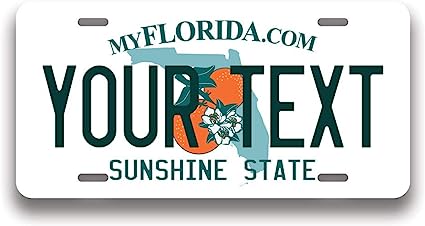Auto insurance is a critical aspect of car ownership, providing protection and financial security in the event of accidents or other unforeseen circumstances. In Florida, like in many other states, there are specific laws and insurance coverage options that drivers must be familiar with. In this blog post, we will delve into three important aspects of auto insurance in Florida: the TAG Law, Financial Responsibility Law, and Comprehensive and Collision Coverage. Understanding these concepts will help you navigate the world of auto insurance and make informed decisions to protect yourself and your vehicle.

The TAG Law:
TAG stands for Temporary Authorization to Operate a Motor Vehicle. In Florida, this law requires drivers to have a minimum level of auto insurance coverage before they can obtain or renew their vehicle’s registration. The purpose of the TAG Law is to ensure that all registered vehicles on the road are adequately insured, thereby protecting both the driver and other parties involved in potential accidents.
To comply with the TAG Law in Florida, drivers must have the following minimum insurance coverage:
Personal Injury Protection (PIP): This coverage helps pay for your medical expenses and lost wages in the event of an accident, regardless of who is at fault. The minimum required PIP coverage in Florida is $10,000.
Property Damage Liability (PDL): This coverage pays for the damages you cause to someone else’s property in an accident. The minimum required PDL coverage in Florida is $10,000.

Financial Responsibility Law:
The Financial Responsibility Law in Florida mandates that drivers must demonstrate financial responsibility in the event of an accident. This means that if you are involved in a car accident and found at fault, you are required to have the means to cover the costs of bodily injury or property damage to others. While auto insurance is the most common way to meet this requirement, Florida allows other options, such as making a substantial cash deposit with the Department of Highway Safety and Motor Vehicles (DHSMV) or obtaining a surety bond.
To fulfill your financial responsibility, it is advisable to obtain auto insurance coverage that includes Bodily Injury Liability (BIL). Adding $10,000/$20,000 in Bodily Injury coverage means you have coverage of up to $10,000 for each individual injured in an accident, with a maximum limit of $20,000 for all injuries. This coverage helps protect your assets and ensures you are prepared to handle the financial implications of an accident that results in bodily injury to others.
Comprehensive and Collision Coverage:
While the TAG Law and Financial Responsibility Law establish minimum insurance requirements, they do not cover all potential risks and damages. This is where Comprehensive and Collision Coverage comes into play. These types of coverage are optional but highly recommended, as they provide additional protection for your vehicle.

Comprehensive Coverage protects against non-collision incidents, such as theft, vandalism, natural disasters, or damage caused by animals. It ensures that you are financially safeguarded from these unpredictable events.
Collision Coverage, on the other hand, covers damages to your vehicle resulting from collisions with other vehicles or objects, regardless of who is at fault. It ensures that you have the necessary resources to repair or replace your vehicle in such scenarios.
Surrendering a Vehicle: If you decide to voluntarily surrender your vehicle, it’s important to take the necessary steps to prevent any complications with your auto insurance and driver’s license. One crucial action to take is to promptly return your vehicle’s license plate, also known as the TAG, to the state authorities. By turning in your TAG, you help prevent potential license suspension or other issues related to the surrendered vehicle.

Auto insurance laws in Florida, including the TAG Law and the Financial Responsibility Law, aim to ensure that all drivers on the road have a minimum level of coverage to protect themselves and others. While these laws set a foundation for insurance requirements, it is crucial to consider additional coverage options like Comprehensive and Collision Coverage to provide comprehensive protection for your vehicle.
By adding $10,000/$20,000 in Bodily Injury coverage, you enhance your financial responsibility and protect your assets in case of accidents resulting in bodily injury to others. When faced with situations like surrendering a vehicle, breakdowns, or total loss, promptly notifying your insurance company and following their guidance will help streamline the process and ensure you receive the necessary support.
When choosing an auto insurance policy in Florida, it is advisable to consult with an experienced insurance agent like Right Away Insured to evaluate your specific needs and understand the available coverage options. By being aware of the insurance laws and selecting appropriate coverage, you can drive with confidence, knowing that you are adequately protected in the event of an accident or unexpected damage. Stay safe and insured on the roads of the Sunshine State!

Richard T. Feeney III
Chief Executive Officer
05/30/2023
